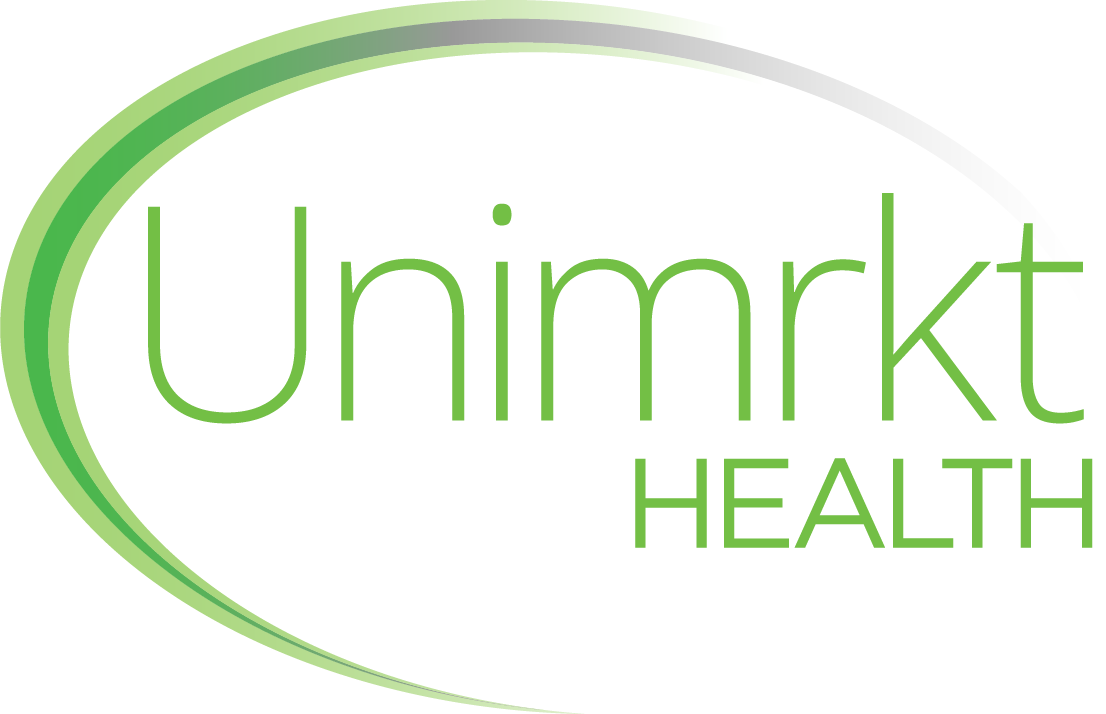Using Qualitative Research to Uncover & Address Healthcare Access Inequities
- Unimrkt Healthcare » Blog » Using Qualitative Research to Uncover & Address Healthcare Access Inequities
Access to healthcare remains elusive for millions of people worldwide. While technological advancement and medical innovation continue to reshape how care is delivered, many individuals and communities still struggle to access even the most basic health services. These access inequities don’t just impact individual outcomes; they also represent a missed opportunity for healthcare organizations to expand their services and make a deeper, more meaningful impact.
Understanding the root causes behind these disparities requires more than just data points and numbers. It demands listening to real people, learning their stories, and analyzing the context around their healthcare decisions. This is where qualitative healthcare research plays a pivotal role.
The Realities of Healthcare Access Inequities
Healthcare access inequities refer to the uneven distribution of healthcare services and opportunities across different populations. These disparities may arise from geography, socio-economic status, race, language, or even cultural beliefs, which often leaves vulnerable communities underserved or completely overlooked.
Common Challenges Include:
- Remote Locations
Patients in rural or remote areas struggle with long travel times, limited transport, and a shortage of medical professionals. These barriers often result in delayed diagnoses and treatment. In emergencies or chronic cases, the outcomes can be severely compromised.
- One-Size-Fits-All Solutions
Uniform care models fail to account for cultural, linguistic, and socio-economic differences. This leads to poor engagement, mistrust, and underutilization of services. Qualitative research methodology helps tailor care to diverse patient needs.
- Limited Online Tools
Many underserved groups lack access to telehealth, apps, or even stable internet. Digital illiteracy and unfriendly interfaces further exclude elderly or disabled users. This digital divide widens existing healthcare inequities.
- Lack of Qualitative Data
Quantitative data shows outcomes, but not the why behind patient decisions. Qualitative healthcare research uncovers emotional, social, and contextual drivers of behavior. Without it, programs risk missing the mark entirely.
- Fragmented Information
Patients often don’t know about related services like mental health or nutrition support. This stems from poor communication and disjointed healthcare networks. Qualitative healthcare market research reveals these gaps and improves care access.
These challenges create not only poorer health outcomes for patients but also hinder providers from optimizing care delivery and expanding into underserved markets. Qualitative healthcare research can be quite effective in identifying these inequities.
How Qualitative Research Helps Identify Healthcare Inequities
Qualitative health research uncovers the why behind the numbers. By using methods such as Interviews, Focus Groups, Patient Journey Mapping, and Observational Studies, researchers can gain deep, contextual market data on patient behavior, motivations, and barriers.
Key Benefits of Using Qualitative Research in Healthcare:
1. Patient-Centered Data
Through in-depth interviews and discussions, qualitative methods for health research allow patients to voice their experiences in their own words, capturing emotional, cultural, and practical barriers to access that traditional surveys might miss.
2. Contextual Understanding
Healthcare isn’t one-size-fits-all. Qualitative research methodology helps providers understand how cultural beliefs, family roles, language barriers, and social stigma affect how people seek and experience care.
3. Uncovering Unseen Patterns
Trends such as delayed diagnoses, poor adherence to treatment plans, or avoidance of medical institutions can often be traced back to systemic inequities, which qualitative healthcare research helps bring to light.
4. Improved Communication Strategies
Data from qualitative market research can guide healthcare providers in crafting messaging that resonates with specific groups. It includes use cases such as simplifying medical language, offering multilingual support, or reframing how services are presented.
5. Enhancing Digital and Remote Services
As telehealth and digital platforms grow, healthcare qualitative market research helps organizations design user-friendly tools and interfaces that are accessible to tech-hesitant or digitally underserved populations.
6. Better Policy Development
Government bodies and public health organizations rely on qualitative medical market research to inform regulations and funding decisions that ensure equitable healthcare access across demographics.
7. Insight for Nursing and Frontline Care
Qualitative research in nursing and healthcare allows nurses and community health workers to provide more empathetic, effective care by understanding the lived experiences of patients in vulnerable communities.
The Significance of Qualitative Research for Healthcare Organizations
We are entering an era of personalization and precision in medicine. Yet, unless healthcare organizations understand how patients navigate healthcare systems and why certain populations are left behind, meaningful change remains out of reach.
Whether you are a hospital looking to improve community outreach, a health-tech company launching a digital platform, or a pharmaceutical brand hoping to support underserved populations, qualitative medical research should be a foundational part of your strategy.
Key Use Cases Include:
- Designing Culturally Tailored Health Programs
Qualitative medical research helps uncover cultural beliefs and practices that shape health behaviors. This market data enables the creation of culturally competent programs that boost participation and trust. It improves the impact of wellness campaigns, immunization efforts, and preventive care outreach.
- Improving Communication with Socially Isolated Groups
Social isolation for non-native speakers, often caused by limited access to specialized care and lack of communication due to language barriers, is a significant barrier to healthcare access. Qualitative research uncovers how factors like communication gap, transportation issues, unfamiliarity with medical technology, and limited options contribute to disengagement. By understanding these challenges, healthcare providers can develop strategies to improve care accessibility for underserved populations.
- Understanding Gender Disparities in Healthcare-Seeking Behavior
Men and women access care differently due to cultural norms and social expectations. Qualitative methods for health research reveal these gendered behaviors and decision-making patterns. The result: more inclusive, gender-sensitive healthcare interventions.
- Enhancing Chronic Illness Care for Aging Populations
Elderly patients face barriers like isolation, mobility issues, and poor care adherence. Qualitative health research identifies their needs, routines, and care preferences. This supports the development of user-friendly, age-appropriate care models and tools.
- Improving Maternal Care for Low-Income and Rural Women
Rural and low-income women often lack access to maternal care and information. Qualitative medical market research captures their specific fears, challenges, and unmet needs. This leads to better maternal outreach, safer births, and improved family health outcomes.
Unlock New Growth Opportunities by Addressing Inequity
In an industry where trust, access, and patient engagement are everything, addressing healthcare disparities is more than a moral imperative but a growth strategy. Patients who feel heard, understood, and supported are more likely to seek timely care, adhere to treatment, and stay loyal to their healthcare providers.
By investing in qualitative health research, businesses can uncover underserved segments, refine their offerings, improve community relations, and make informed decisions that drive long-term success.
Whether you’re launching a new health initiative, entering a new market, or looking to improve digital engagement, Unimrkt Healthcare can help you lead with empathy, data, and impact.
Ready to Transform Your Strategy?
As a global leader in healthcare research, Unimrkt Healthcare offers a comprehensive suite of qualitative market research services tailored to the unique needs of the healthcare industry. We help providers, manufacturers, researchers, and policymakers uncover the real-world factors affecting healthcare access and usage, so that they can turn market data into actionable strategies. To learn more about how we can help address healthcare access inequities through qualitative healthcare research, call us at +91-124-424-5210 or +91-9870-377-557, or email sales@unimrkthealth.com. You can also fill out our contact form, and our team of experts will connect with you promptly. Let Unimrkt Healthcare, a trusted qualitative health company, guide your organization in identifying, understanding, and addressing healthcare access inequities with clarity and compassion.
Frequently Asked Questions
Q: What is qualitative healthcare research, and why is it important?
Qualitative healthcare research focuses on understanding the human experience behind healthcare data. It explores patients’ beliefs, emotions, and behaviors. These are data points that help healthcare organizations design better services and bridge access inequities effectively.
Q: How does qualitative research methodology differ from quantitative methods in healthcare?
While quantitative methods provide measurable data like treatment success rates or hospital admissions, qualitative research methodology explores the why behind patient decisions. It offers context through Interviews, Focus Groups, and Observations to improve care outcomes.
Q: How can qualitative medical market research help reduce healthcare access inequities?
Qualitative medical market research identifies barriers such as cultural misalignment, language gaps, or digital inaccessibility. This market data empowers healthcare providers to design more inclusive, patient-centric services and expand their market reach to underserved populations.
Q: What are some qualitative methods for health research commonly used by healthcare companies?
Common qualitative methods include In-depth Interviews, Ethnographic Studies, Patient Journey Mapping, and Moderated Focus Groups. These tools are widely used in healthcare qualitative market research to uncover unmet needs and improve service delivery strategies.
Q: Why should healthcare companies invest in qualitative research in nursing and healthcare?
Qualitative research in nursing and healthcare enables frontline professionals to understand patient experiences more deeply. It leads to more empathetic communication, better care planning, and improved trust between patients and providers, particularly in vulnerable communities.
Q: What makes Unimrkt Healthcare a trusted qualitative health company?
Unimrkt Healthcare specializes in qualitative medical research with custom-built studies, multilingual capabilities, and culturally sensitive approaches. As a leading qualitative health company, we help brands and providers with accurate and reliable market data so that they can derive insights for designing impactful healthcare solutions.
Recent Posts
- 10 Medical Online Survey Mistakes You Must Leave Behind in 2025
- How Qualitative Healthcare Research Can Accelerate Ethical AI Adoption
- Trust as a Growth Strategy: What Healthcare Leaders Can Learn From Business Market Analysis
- Mapping the Healthcare Value Chain: A Market Research Perspective
- Decoding Emotional Triggers in Treatment Choices: A Qualitative Approach
Archives
Quick Enquiry
Customer Service, We Make it Better
Related Posts:
Let's Connect
Please, fill in the form to get in touch!



